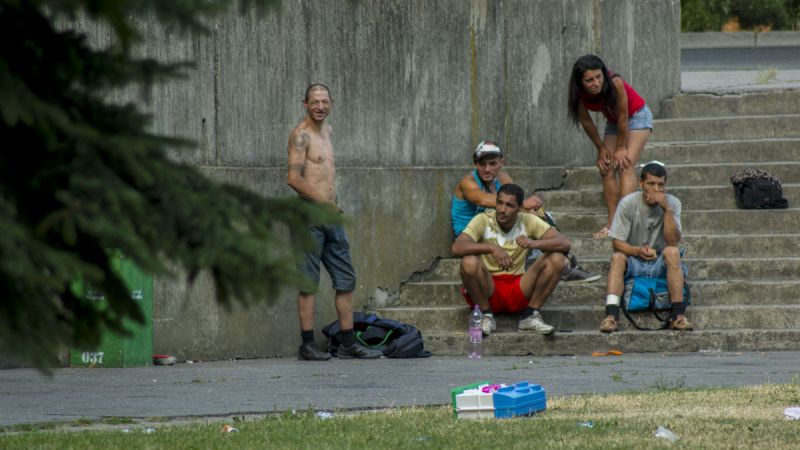Ravasz: Toluol Epidemic Breaks Out; Its Sale to Public Must Be Restricted

Bratislava, May 5 (TASR) – The Government Proxy for Roma Communities Abel Ravasz (Most-Hid) is dealing with an increase in the use of toluol, a so-called drug for the poor, among the Roma community, TASR learnt on Friday.
Based on a motion from Filakovo (Banska Bystrica) mayor Attila Agocs, Ravasz’s Office wants to limit the public’s access to this chemical. The issue is so serious that Ravasz is even speaking about the toluol epidemic in dozens of towns and villages across Slovakia.
“Access to toluol is very easy – you enter a shop that sells paint and buy some. However, the repeated abuse of this psychotropic substance leads to the loss of social contacts and to total apathy, especially in relation to the social environment,” said Agocs at a press conference earlier in the day.
According to Ravasz, toluol is easily accessible in Slovakia despite the fact that European legislation restricts its sale.
In line with EU regulation, a seller may not sell toluol as such or glue or spray containing the substance to a person who doesn’t work with toluol in his or her job. This fact has to be proved by a trade licence or an extract from the Commercial Register.
“We’ve found that sellers often don’t have the correct information about the legal regulation concerning the sale of toluol,” said Ravasz, adding that if the sellers followed the valid EU regulation, the problem would be solved.
“In line with the legislation concerned, ordinary people shouldn’t have easy access to toluol any longer, as when buying the substance people have to show their trade licence proving that they really need it for work,” said the government proxy.
In order to combat the toluol epidemic, his Office has therefore prepared information and leaflets for sellers and the public. It will also send people from regional offices to the villages affected by the epidemic to raise awareness on the matter.
“If selling toluol to inappropriate people continues, we’ll take stricter measures in the form of checks,” said Ravasz, adding that his Office might impose a fine of up to €99,500 for violating the regulation.



